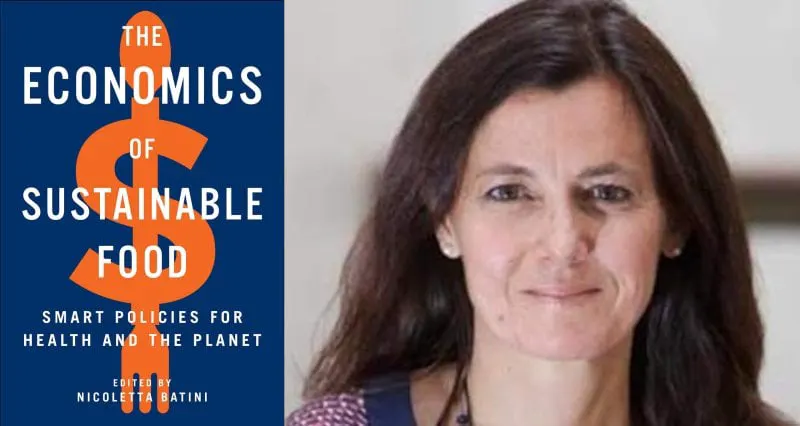How can we produce more food with less environmental impact: Book review of ‘The Economics of Sustainable Food’
How can we produce more food with less environmental impact: Book review of ‘The Economics of Sustainable Food’


Aimed at the army of advocates, activists, and policymakers engaged with food and agricultural politics, [Nicoletta] Batini hopes that The Economics of Sustainable Food can help “design sound public policy strategies” to achieve a sustainable relationship between food, economics, and the climate.
The book’s four main sections—“Greening Food Supply,” “Greening Food Demand,” “Greening Food Waste,” and “Conserving Land and Sea to Support Food Security”—each contains contributions from multiple authors, including developmental economists, agronomists, activists, and nonprofit leaders.
The breadth of voices explains the array of positions staked out in the book. But even within the perspectives of individual authors there can be a sense of confusion and fuzzy thinking.
For example, Batini calls for a wholesale shift from conventional farming (high-yield commercial agriculture that involves inputs such as synthetic fertilizers and pesticides) to organic and regenerative farming, without fully defining what she means by regenerative.
In the same chapter, she advocates for rewilding and reforesting land that has been used for agriculture. These two ideas may in fact be in direct opposition: organic agriculture on average produces lower yields than conventional farming, meaning that organic farmers would require more land to produce the same amount of food.
How can agricultural land be returned to a more wild state if farmers end up needing more land for agricultural production?
This is an excerpt. Read the original post here.

 | Videos | More... |

Video: Nuclear energy will destroy us? Global warming is an existential threat? Chemicals are massacring bees? Donate to the Green Industrial Complex!
 | Bees & Pollinators | More... |

GLP podcast: Science journalism is a mess. Here’s how to fix it

Mosquito massacre: Can we safely tackle malaria with a CRISPR gene drive?

Are we facing an ‘Insect Apocalypse’ caused by ‘intensive, industrial’ farming and agricultural chemicals? The media say yes; Science says ‘no’
 | Infographics | More... |

Infographic: Global regulatory and health research agencies on whether glyphosate causes cancer
 | GMO FAQs | More... |

Why is there controversy over GMO foods but not GMO drugs?

How are GMOs labeled around the world?

How does genetic engineering differ from conventional breeding?
 | GLP Profiles | More... |

Alex Jones: Right-wing conspiracy theorist stokes fear of GMOs, pesticides to sell ‘health supplements’




 Viewpoint — Fact checking MAHA mythmakers: How wellness influencers and RFK, Jr. undermine American science and health
Viewpoint — Fact checking MAHA mythmakers: How wellness influencers and RFK, Jr. undermine American science and health Viewpoint: Video — Big Solar is gobbling up productive agricultural land and hurting farmers yet providing little energy or sustainabilty gains
Viewpoint: Video — Big Solar is gobbling up productive agricultural land and hurting farmers yet providing little energy or sustainabilty gains Trust issues: What happens when therapists use ChatGPT?
Trust issues: What happens when therapists use ChatGPT? Fighting deforestation with CO2: Biotechnology breakthrough creates sustainable palm oil alternative for cosmetics
Fighting deforestation with CO2: Biotechnology breakthrough creates sustainable palm oil alternative for cosmetics California, Washington, Oregon forge immunization alliance to safeguard vaccine access against federal undermining
California, Washington, Oregon forge immunization alliance to safeguard vaccine access against federal undermining 30-year-old tomato line shows genetic resistance to devastating virus
30-year-old tomato line shows genetic resistance to devastating virus The free-range chicken dilemma: Better for birds, but with substantial costs
The free-range chicken dilemma: Better for birds, but with substantial costs ‘You have to treat the brain first’: Rethinking chronic pain with Sanjay Gupta
‘You have to treat the brain first’: Rethinking chronic pain with Sanjay Gupta
